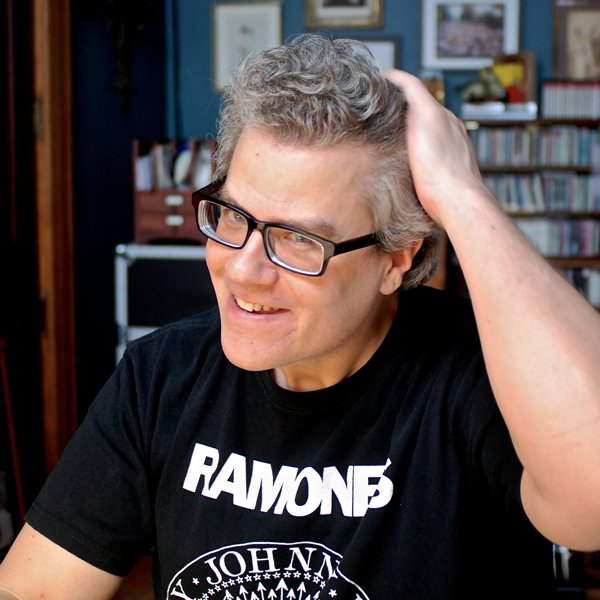LOUIS ROBERT KING
Composer For Film & Series

Composer, recording artist, arranger, and Recording Academy (GRAMMY®) member Louis Robert King is known for crafting unique film scores; creating magical backing arrangements for recording artists; and composing soulful cinematic music as a member of the band, The Ironsides.
As an orchestrator, he has created the musical colors you hear in the iconic Columbia Pictures Opening Titles, as well as scores for Disney's “The Little Mermaid II,” and Rob Marshall's film adaptation of the Broadway classic “Annie." In 2022 he used those same skills for record industry icon Terry Ellis's "Chrysalis Rock Orchestra" - A reimagining of rock classics performed by a 40 piece orchestra.
King has composed orchestral, hybrid, and jazz scores for a wide variety of films and series across genres. To date films with his music have made more than 370 festival appearances, earning more than 60 awards. His score for "Red Coats" won the Best Music Award at the 2024 Chicago Horror Film Festival and he garnered a 2025 Beaufort Film Festival Best Score nomination for "Game Night". The films "Sally Get The Potatoes", "Live Long", "Ms Pink", "Blood Is Thicker", "Her Turn", and "Margo for Real" are all in their festival run featuring his scores. He recently completed scoring the rom-com "Double Happiness", the sci-fi drama "Never Too Late", and the romantic drama "Boxes & Elephants".
As a member of The Ironsides, King co-wrote and arranged the orchestra for the 2023 release "Changing Light" - a collection of instrumental music heavily influenced by film scores of the late 60's and early 70's. Named to many "Best of 2023" lists, cuts from this album have more than 5 million streams on Spotify alone. It is available on vinyl at your local record store, direct from Colemine Records, or on all streaming services.
He has also created award-winning musical branding for major companies like Xbox, Google, and Nintendo. In 2018 his composition for the HP short branded film “The Show,” was nominated to be part of the AICP (Association of Independent Commercial Producers) permanent collection at MOMA.
Beyond the realm of media, his involvement in the music world includes creating arrangements for Janelle Monae’s performance at a recent Ralph Lauren fashion event, Lauren's 50th Anniversary event in Central Park, and Evan Rachel Wood’s appearance at the LACMA Art + Film Gala. King also produced the string arrangements for artists Kelly Finnigan, Monophonics, Salvator Dragatto, The Sextones, Alanna Royale, The Sentiments, and the Whatitdo Archive Group.
When King is at work in his New York City studio, composing the score to accompany a film, his typical method is as follows: First, he studies a single video sequence intensely, absorbing and interpreting the emotion that it means to convey—in his own words, “finding its musical soul.” This may go on for several hours, as he views the same sequence over and over and over again. Then, he looks for something completely different to do.
“I have to step away for a while and let the ideas marinate,” King explains. “At times like this, it’s good to unload the dishwasher, or go for a walk, or turn on Colbert.” Once this contemplation phase is through, the writing begins. It could start with anything—a melody, a rhythm, a chord progression, a particular combination of instruments—but in the end, it leads to an engaging, full-bodied composition that connects directly to what’s taking place on screen.
“Something happens when a narrative is supported by music,” King says. “It takes both of those things—the narrative and the music—and increases their effect exponentially. That’s a kind of artistic partnership that doesn’t really have a parallel.”
“From the time I was a teenager,” he says, “I knew music was what I needed to do.” That need eventually brought him to Berklee College of Music in Boston, where he tapped into his burgeoning interest in film scoring and learned the skills of the orchestrator’s trade.
As time goes by, King has cast his net of influences ever wider. “The more music you’re familiar with,” he says, “the easier it is to find a unique emotional voice for every idea. It could come via Stravinsky, or it could come via Tom Waits. Because the answer for any given project is always different from the one before, you need as many different wells of inspiration to draw from as possible.”
King’s compositional approach may change from day to day, but his principal goal never does: “My intention always is to give directors and show-runners what they didn’t know they wanted.”
During his time away from composing, King regularly indulges his passions for wine, food, and poker. “There’s an interesting parallel between poker and composing,” he notes. “They both keep your mind sharp by giving you problems to solve. And I love being a problem solver.”